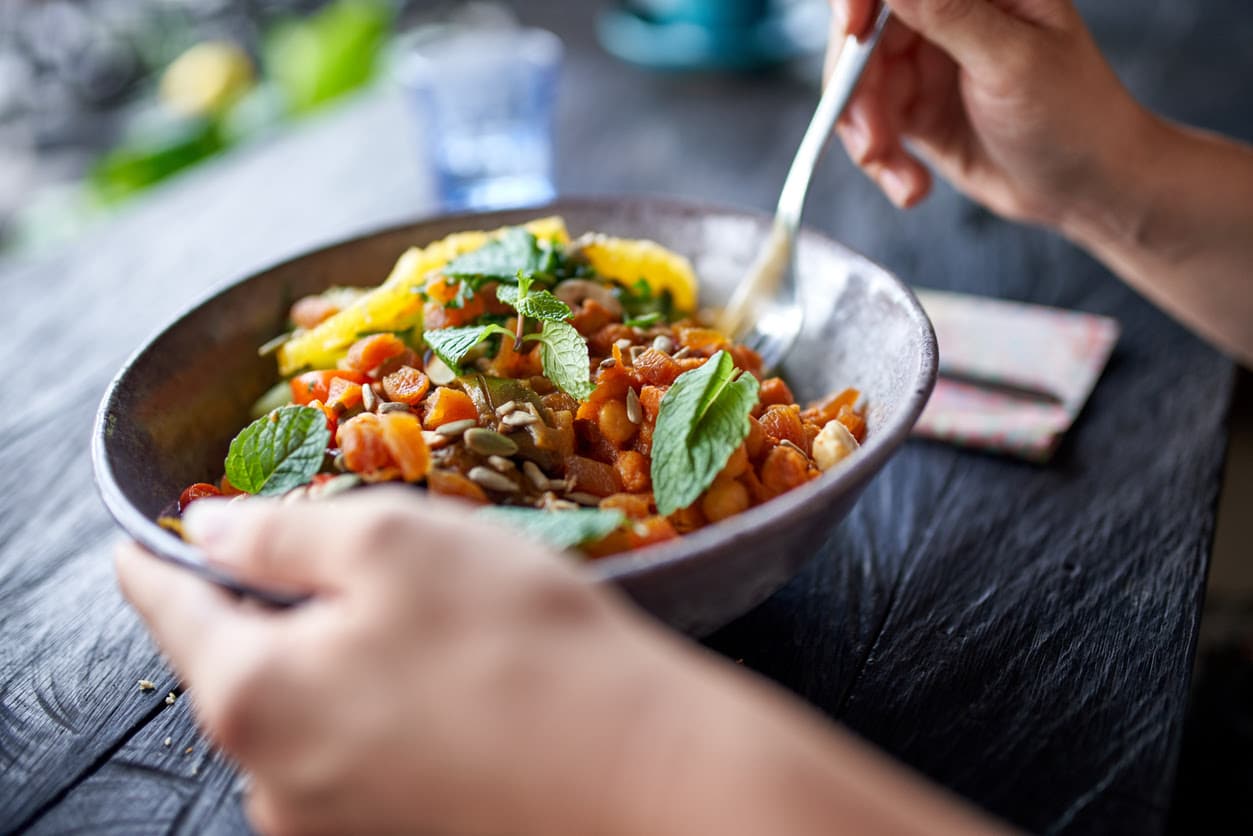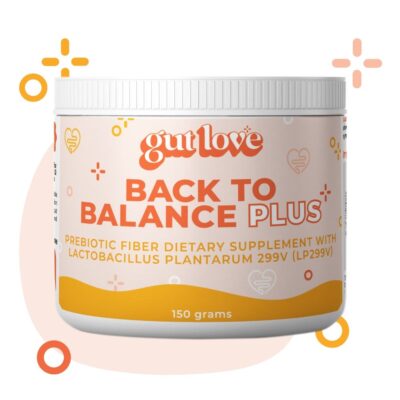Lectins – they often get a bad rap. But is it truly warrented? Let’s talk about it.
Do you sometimes experience digestive problems or irritation after eating some foods? If you notice whole grains, beans, or “nightshade” vegetables trigger some discomfort, there are many possibilities for what could be the trigger.
In the blog world, lectins have caught a lot of attention as the potential reason for everything under the sun. As usual, there is much more to the conversation to be had and generally the benefits of these foods far out weigh concerns about lectins.
What are Lectins?
Lectins are proteins found in all plants but are in large amounts in nuts, legumes, seeds, wheat, and some veggies. Commonly referred to as an “anti-nutrient,” lectins prevent the absorption of certain nutrients. This is a feature that plants use to protect themselves in nature. However, while this defense mechanism works great for plants, it doesn’t always work well for your gut.
Since lectins block the absorption of important nutrients and can cause gut problems shouldn’t they be avoided? Well, not so fast. Lectins are known for getting a bad reputation, but the blog world often leaves out the decades of research that backs up the many benefits of these foods when prepared correctly.
If you’ve been unsure about including or excluding lectins in your diet, keep on reading to learn more!
Why are lectins not good?
Lectins resist being digested and are very stable in an acidic environment, a feature that defends these plants in nature. If you take them in their active state, they can lead to adverse side effects.
In fact, eating raw kidney beans can cause food poisoning since it contains a high amount of “phytohemagglutinin.” A kind of lectin that may cause red blood cells to clump together. It may also cause vomiting, nausea, diarrhea, and stomach upset. Other side effects are bloating and gas.
Studies on animal cells have found that lectins can affect the absorption of minerals, especially iron, calcium, phosphorus, and zinc. Cereals and legumes contain these minerals, so the presence of lectins can prevent the use and absorption of these elements in your body.
Furthermore, they can can bind to cells, thus lining your digestive system. This can affect the breakdown and absorption of nutrients into your body. Since lectin bind to cells for an extended period, it may even contribute to an autoimmune response.
Why you should still consume lectins
Are they really bad for you? Although eating too many foods containing lectins can cause serious side effects on your health, they can also play vital roles in your body. Lectin help regulate cell adhesion and play a role in immune function and the synthesis of glycoproteins.
Lectins play a role in immune regulation, and studies show that they might have antimicrobial elements. Actually, they have shown to be more effective against various types of bacteria. Lectins might also help fight viral infections and fungi, with some research showing that they may block the growth of fungus that causes yeast infection.
Other studies show that some lectins may possess anticancer properties too. Based on a 2015 review published in Cell proliferation, they can modify the expression of particular immune cells and signaling pathways to help kill cancer cells and avoid tumor growth.
Some early research is looking at using small amounts to stimulate gut cell growth in people who cannot eat for long periods.
But far beyond these very niche studies, lectins more importantly are found in foods that have many profound health and microbiome benefits when consumed in the context of a divere diet. In many extensive population research, foods containing lectins such as legumes, nuts, and whole grains are linked to healthy weight, low rates of cardiovascular disease, and type 2 diabetes.
How to Prepare Lectin Rich Foods with Less Symptoms
Even though lectins have some side effects, you don’t need to cut out these foods from your diet. When you prepare the food properly, you can reduce the lectin level. After all, consuming foods containing a high level of active lectins is rare because of the potent taste.
Simply cooking reduces most of the concerns
Cooking methods such as stewing, boiling, or soaking in water for a few hours can render most of the anti-nutrients inactive. Lectins are generally found on the outer side of food, and they are water-soluble, so soaking them eliminates them.
Cooking, soaking, sprouting, and fermenting can also be effective ways to eliminate lectin content. Sprouting (germination) involves soaking seeds for up to 24 hours and then rinsing and drying them for a few hours for some days. Apart from decreasing the amount of lectin in your legumes and grains, sprouting enhances the nutritional content of your foods. It also helps reduce the number of other antinutrients that might interfere with digestion.
Fermentation & Canning
Fermenting foods can help minimize the level of lectin content. Fermenting food allows the beneficial bacteria to break down the lectins and other antinutrients. Add some beneficial bacteria or leftovers from previous fermented food to kick-start the fermentation process. Typically, fermented food has a pleasantly sour taste and, at times, fizzy quality, and it can be a great source of probiotics.
Also, canned beans are prepared and packed in liquid, so they are low in lectins. But raw beans cooked under low heat or undercooking won’t eliminate all the lectins.
Your body can produce enzymes that help damage some lectins. Another way to deactivate lectins is to remove the outer cover of wheat and beans grains physically. The outer shell has a high amount of lectins.
If you want to eliminate lectins from potatoes or tomatoes, breaking out the pressure cooker might be best. Just add water, cover it and start cooking.
The Benefits of These Foods are Too Important to Miss
Consumption of legumes, nuts, grains, and vegetables is associated with positive health outcomes. Foods such as legumes contain dietary fiber that is essential to your body. In fact, according to a study, people that don’t restrict fiber are 40% less likely to flare in inflammatory bowel disease (IBDs).
And those that consume whole grains similar to fiber were less likely to flare. However, it’s essential to take a reasonable amount, especially if you usually experience adverse effects after eating food rich in lectins.
Bottom line – you aren’t getting a ton of lectins unless you are eating raw beans (please don’t)
Nuts and whole grains are rich in proteins, vitamin B, and fiber, associated with better outcomes in those who consume them. Cooking and soaking eliminate most lectins, minimizing them to a low enough level for consumption. This makes them safe to consume.
But if you usually experience constant discomfort after eating foods containing lectin, consider talking to the Crohn’s and Colitis Dietitians. Click here to learn more about our personalized nutrition plans. If you have any questions reach out today, and we will be glad to assist you.







Hi.
It’s so confusing with all the varied information from experts.
I would appreciate a complementary call from a licensed certified nutritionist.
My primary concern is to turnaround my overall health and to focus on restoring back my Body Mass Index ( BMI)& restoring back my 140 pound weight to support my 5feet 9 inch height, in healthy ways. Will you help please. Of course there is more to share about my overall health concerns.Thank you!
Hi Karen, would you mind emailing us at su*****@************************ns.com – that way we can direct you to someone who would be a good fit for you?
Excellent article and explanations! Thank you!
Ashley I am an Aussie Mum and have had UC for 12 years. I love your posts and thank you from the bottom of my heart for the information you are sharing with us.
Thank you Lucy!